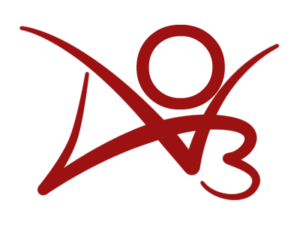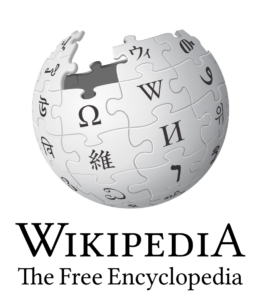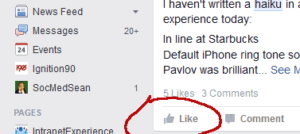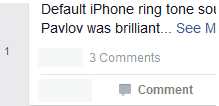Facebook and Isolation: How do we fix it?
Facebook: Fixing What Could Be Great
There are 7 Billion people in this world and we are alone. Or rather that is how it always often feels. As it was eloquently put in the video “The Secret to Happiness,” humanity is a naturally social creature. We want to be together, we want to form communities, and while social media gives the outward appearance of one, it often times fails to be.
Social media manages to connect people from all over the world like no technology has been able to in history. It is a bridge that could create once nigh impossible communities, but it is held back by greedy practices and exploitation of flaws in human psychology.
Let’s take the longest lasting and most prominent social media platform as our guinea pig, Facebook. Facebook has over a billion users worldwide and is a looming titan over the internet landscape. You’d think that it would be the perfect place to build community with people all over the world, and while these communities can be formed, it focuses down on two specific goals aside from community building: targeted advertisement and hollow instant gratification. These two problems must be resolved before a solid foundation for community building can be laid.
Facebook harvests data from it’s users in various unscrupulous ways that are hotly debated on in public circles on if they are morally right. This data is harvested from the moment you sign up and collects with every post you view or like. This data is then used to target the user with adds, sometimes politically motivated ones. In order to remove this distraction I suggest two possible avenues.
1: As suggested in an article we read a few weeks ago, an agency should be formed with the express purpose of protecting users and their information from corporations that would abuse it. Users should be allowed to decide what amount of their information they want to be given out, and not be forced to agree to blanket statements just to use platforms that are becoming increasingly essential to daily life. The users are the backbone of any internet platform, they should have the power in these situations, not groups like Facebook.
2: Facebook could forgo targeted adds altogether and instead function based off of donations. Websites like Patreon have shown that donation based income is completely possible, and large sites like Archive of Our Own and Wikipedia are funded on user derived donations to keep them from being beholden to any private interests but those of their base.



The next problem is found in the ever addicting “Like”. Affection is an aspect of any healthy community, but Facebook takes advantage of our need to feel validated through the popularity contest that is brought on by the Like feature. Instead of sharing our experiences and lives with each other like in a normal community we are all ranked by who is able to post the wittiest/prettiest/snappiest/shocking things they can to get the invisible yet fleeting gratification that comes with seeing the number next to the like button go up.
We talked about this in Micheal Scott’s class earlier, specifically about the same phenomenon going on on Snapchat. Everyone is in a race to get the most follows. “Followers” are no longer the amount of people you connect with, but are almost a form of currency on the platform. People by and sell follows and accounts with massive followings just for the cheap gratification of having them. This doesn’t bring lasting happiness, and it certainly doesn’t breed a community, all it breeds is a battle field.
That is why I suggest the radical idea of removing the Like button, or at least, giving people the option to opt out of being able to see or interact with it. With this we remove the largest source of discord on the platform and end the race for non-existent prestige. Now the only way to really interact with or show appreciation for a post is to leave a comment on it.
Current Facebook Posts have the Like Button feature:

But do we really need it? I’d say no:

I do creative writing often and post on websites like Archive of Our Own, and while getting a Kudos or a Like does give me a cheap thrill for a few short moments, getting a comment or a review would liven up my whole day. Getting to hear a real person’s thoughts and feelings about my work held more of a meaningful impact for me than a hundred likes and introduced me to people I look forward to seeing the thoughts of more in the future. Through this I felt a community form around my work. By pulling the focus of Social Media away from Likes and towards comments it breeds interaction and connection over numbers races, and opens up chances to meet new people who you might not have interacted in a meaningful way with on the platform otherwise. Removing cheap validation plants the seeds for actual connection.
Now with plans to remove the largest obstacles in place we can get to the main issue, building community. Now how do we do that? Of course there is the friend system already in place. You send someone a friend request, they maybe accept, then you see eachother’s posts in you feed. This system is a great way to maintain a community that has drifted apart due to distance. Friends and family who move across state or country lines can stay tightly connected via this method, and that should be commended.
However this can have a contracting effect on community. It can get very easy to sink yourself into an echo chamber on the site, where you take your close friends and only follow them, never poking your head out of your little slice of the internet. Real life isn’t like that, real life is full of strange chance meetings and random friendships that by all means shouldn’t have formed but did due to unlikely intersection in life.
To give an anecdote, two friends of mine, Sebastian and Aiden I only met by chance by finding myself randomly placed on the same team in a game of Overwatch. Ever since we have been friends and talk regularly. Beyond this, some of the best experiences I’ve had on the internet have been because of these random crossings of paths. The warm feeling I get from stumbling across someone on Archive of Our Own (A creative writing website) or even on Youtube that I can strike up a conversation with, a connection with, that can give me that sense of community from hundreds of miles away and make my whole day better. This is the feeling I want to replicate in Facebook.
My idea for this is an opt in and customizable service called Face-Connect. Face-Connect would take everyone who agrees to be a part of it, organizes groups of three or four users together at random (after taking into account user established criteria like age range, gender, and certain vague interest categories) and place them together in a special group chat to meet for the first time.
This service would give people the chance to anonymously meet others interested in meeting new people and expanding their social circle beyond their little bubble.
This service would not show the other users the rest of your account or any private information you wouldn’t want to give them. This special chat would also be incapable of connecting to face time or other communication apps, no conversation with a stranger met through Face-Connect will have to go beyond a few words if you don’t want it to. Facebook will also monitor feeds of those who sign up or participate in Face-Connect and blacklist those who actively post alarming material (Racism, Sexism, Homophobia, violent rhetoric, or other generally concerning behavior). There will also be a feature where users, if they feel harassed or threatened by someone they were grouped with, can immediately eject themselves from the group and report the harasser, allowing Facebook to Blacklist them and bar them from Face-Connect. By giving people the chance to leap into the unknown, we give them a chance to find new homes and communities to make. The internet connects us, we should never let it divide us, only through striving to create community on the web can our use of it improve.
You must be logged in to post a comment.